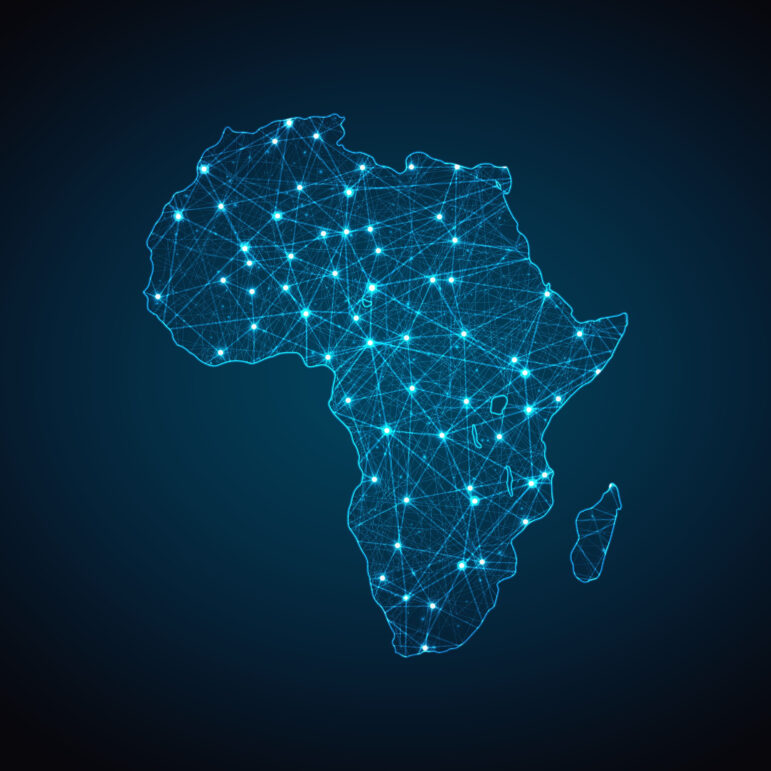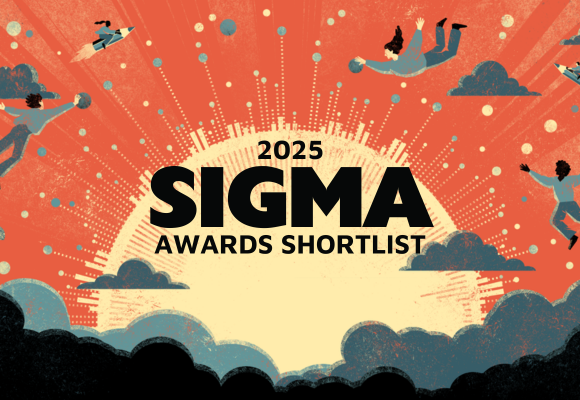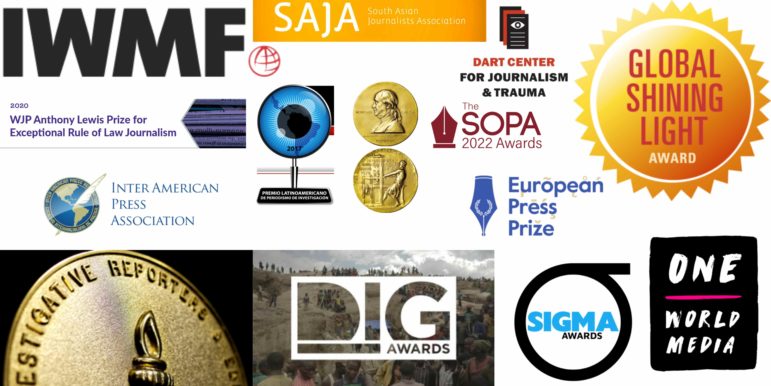

Awards for Investigative Journalists
Read this article in
Editor’s note: This list was updated in April 2024.
Here’s GIJN’s guide to prominent journalism awards and competitions around the world. We have looked for awards that are of special interest to investigative journalists, that are open to international entries, and that are global or regional in scope.
Be sure to double-check the deadlines for submission. Some sites don’t list the deadlines far in advance, so we’ve provided an approximation based on previous deadlines. And if you have suggestions for more awards, we would love to hear from you. Send them to hello@gijn.org.
Global Awards
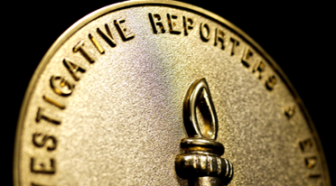 The Investigative Reporters and Editors Awards are a series of awards given annually by the U.S.-based Investigative Reporters and Editors, recognizing the best in investigative reporting by print, broadcast and online media. Open to journalists worldwide. Deadline usually early January.
The Investigative Reporters and Editors Awards are a series of awards given annually by the U.S.-based Investigative Reporters and Editors, recognizing the best in investigative reporting by print, broadcast and online media. Open to journalists worldwide. Deadline usually early January.
The Anthony Shadid Award for Journalism Ethics is sponsored by The Center for Journalism Ethics at the University of Wisconsin at Madison, and recognizes outstanding application of ethical standards by an individual journalist or group of journalists. This is an international contest. Deadline usually in January.
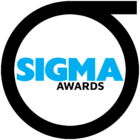 The Sigma Awards celebrates the best data journalism from around the world. There are no categories, and the jury decides how to divide the US$5,000 cash prize. Entries published in languages other than English are accepted but need to be translated. There’s also a Young Talent prize. Deadline usually in January.
The Sigma Awards celebrates the best data journalism from around the world. There are no categories, and the jury decides how to divide the US$5,000 cash prize. Entries published in languages other than English are accepted but need to be translated. There’s also a Young Talent prize. Deadline usually in January.
The TRACE Prize for Investigative Reporting recognizes reporting that focuses on uncovering commercial bribery with the goal of advancing commercial transparency. Nominees can be print reporters, citizen journalists or bloggers from any country. Up to two winning entries will be selected, with each winner receiving a cash prize of US$10,000. The judges may also name up to two honorable mentions, who will each receive US$1,000. Deadline usually end of January.
The ICFJ Knight International Journalism Award honors journalists and media innovators who show extraordinary courage in bringing vital information to audiences in countries beset by conflict and press freedom challenges. Deadline usually February.
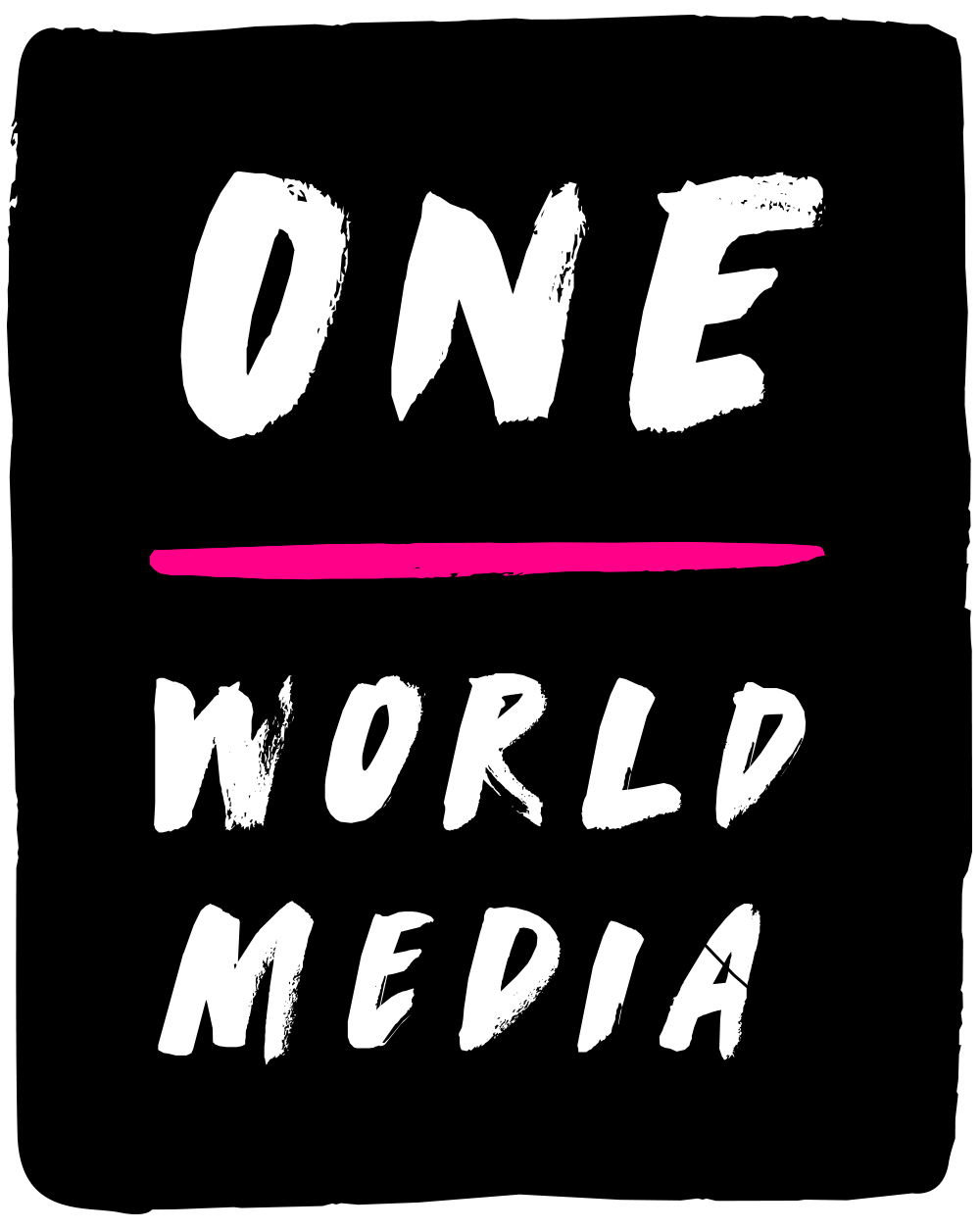 One World Media Awards reward “the most outstanding coverage of the developing world,” cultural understanding, and fairness and justice worldwide. Includes categories for reporting on corruption, women’s rights, refugees, and more. Deadline usually in February.
One World Media Awards reward “the most outstanding coverage of the developing world,” cultural understanding, and fairness and justice worldwide. Includes categories for reporting on corruption, women’s rights, refugees, and more. Deadline usually in February.
UNESCO/Guillermo Cano World Press Freedom Prize honors a person, organization or institution that has made an outstanding contribution to the defense and/or promotion of press freedom anywhere in the world, and especially when this has been achieved in the face of danger. Nominations open usually in February.
 Courage in Journalism Awards honor women journalists who face danger to uncover the truth and raise the bar for reporting under duress. Organized by the International Women’s Media Foundation, the prizes are open to women journalists across various media worldwide. Deadline usually early March.
Courage in Journalism Awards honor women journalists who face danger to uncover the truth and raise the bar for reporting under duress. Organized by the International Women’s Media Foundation, the prizes are open to women journalists across various media worldwide. Deadline usually early March.
World Press Freedom Hero Award, presented by the International Press Institute and International Media Support, honors journalists from around the world who have made significant contributions to the promotion of press freedom, particularly in the face of great personal risk. Deadline usually March.
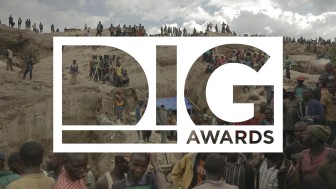 DIG Awards for Journalistic Excellence and Investigative Video are awarded annually by the Associazione DIG at their media festival in Riccione, on Italy’s beautiful Rimini coast. Including categories for long-form, short-form, investigative, and data, prizes run from €1500 to €20,000. Deadline March or late February.
DIG Awards for Journalistic Excellence and Investigative Video are awarded annually by the Associazione DIG at their media festival in Riccione, on Italy’s beautiful Rimini coast. Including categories for long-form, short-form, investigative, and data, prizes run from €1500 to €20,000. Deadline March or late February.
IPI-IMS Free Media Pioneer Award winners are trailblazing media or press freedom organizations that have opened up new frontiers for the free flow of news and information in their countries. Nominations are welcome from around the world and past winners include Novaya Gazeta, Myanmar Now and Rappler. Deadline usually March.
The Lorenzo Natali Media Prize is organized by the European Commission and is open to professional journalists working for all different media types. It was launched in 1992 to recognize excellence in reporting on development issues, inequality, human rights, and poverty eradication. There is a Grand Prize, open to journalists whose media headquarter is located in one of the more than 160 partner countries with which the European Union engages on development and cooperation, a Europe Prize open to journalists whose media headquarter is located in one of the countries of the European Union, and a Best Emerging Journalist Prize open to journalists under 30 whose media is headquartered in any country where DG DEVCO and DG NEAR provide development assistance, as well as in the EU Member States. Deadline usually in April.
Osborn Elliott Prize, is awarded annually by the Asia Society to a writer or team of writers who has produced the best example of journalism about Asia in print or online in English during the calendar year. Deadline usually in April.
 Global Shining Light Award is a biennial award from the Global Investigative Journalism Network. Given at the Global Investigative Journalism Conference, the award honors investigative journalism in a developing or transitioning country, done under threat, duress, or in the direst of conditions. Next deadline in early 2027
Global Shining Light Award is a biennial award from the Global Investigative Journalism Network. Given at the Global Investigative Journalism Conference, the award honors investigative journalism in a developing or transitioning country, done under threat, duress, or in the direst of conditions. Next deadline in early 2027
Online Journalism Awards (OJAs) honor science reporting, community-centered journalism, investigative data journalism, service journalism, climate change reporting, conflict reporting and general excellence. Entries may be submitted from around the world in any language – though submitting a project in English is strongly recommended. Deadline usually in May.
The Kevin Carmody Award for Outstanding Investigative Reporting – one of the Society of Environmental Journalists’ annual Awards for Reporting on the Environment – honors the best environmental investigative journalism in both large and small categories. The world’s “largest and most comprehensive environmental journalism competition” usually has a May deadline.
Kurt Schork Awards in International Journalism are given for intrepid reporting on conflict, corruption, human rights transgressions, and other key issues. There are three awards: one to a freelance journalist covering international news, one to a reporter living and working in a developing nation or a country in transition, and one to recognise the unsung work of news fixers. Deadline usually end of May.
Covering Climate Now Journalism Awards are organized by Covering Climate Now and the Columbia Journalism Review, and honor journalists from every corner of the newsroom who are producing coverage in print, digital, audio, video, and multimedia formats that report on all dimensions of the climate story. Submissions from around the world are accepted. Deadline usually in June.
The Rory Peck Awards recognize the talent and dedication of freelance journalists and filmmakers working in news and current affairs worldwide, whose work shines a light on the impact of conflict, oppression and climate change. Deadline usually July.
 The Barlett & Steele Awards for Investigative Business Journalism celebrate the best in print and online investigative business journalism every year. Named in honor of renowned investigative business journalists Donald L. Barlett and James B. Steele, the award is open to journalists worldwide. Deadline usually July.
The Barlett & Steele Awards for Investigative Business Journalism celebrate the best in print and online investigative business journalism every year. Named in honor of renowned investigative business journalists Donald L. Barlett and James B. Steele, the award is open to journalists worldwide. Deadline usually July.
The Thomson Foundation Young Journalist Award is open to journalists aged 30 and under, from countries with a Gross National Income (GNI) per capita of less than $20,000, to send in their best investigative stories. Usually opens in July.
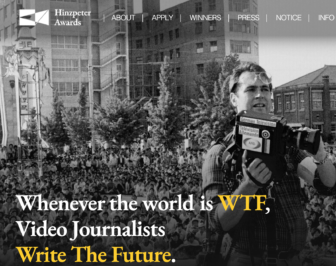 The Hinzpeter Awards honor video journalists who seek the truth, protect human rights, and fight for justice. Jürgen Hinzpeter was a reporter for German broadcaster ARD and the only journalist to film the massacres during the Gwangju uprising in South Korea in 1980. His footage was broadcast worldwide. Categories include news, features, and investigative. The prize for each category is $10,000. Deadline usually in July.
The Hinzpeter Awards honor video journalists who seek the truth, protect human rights, and fight for justice. Jürgen Hinzpeter was a reporter for German broadcaster ARD and the only journalist to film the massacres during the Gwangju uprising in South Korea in 1980. His footage was broadcast worldwide. Categories include news, features, and investigative. The prize for each category is $10,000. Deadline usually in July.
Free Press Awards aim to honor journalists who risk everything to bring the news to the public, media pioneers who pave the way for equality and justice, and those who persevere under the most difficult circumstances. There are two worldwide categories: newcomer of the year and most resilient journalist of the year. The awards are sponsored by Free Press Unlimited, a nonprofit organization based in the Netherlands. Nominations are usually in August.
The Hostwriter Story Prize awards exemplary works of journalistic collaboration. It’s open to teams of two or more journalists who have worked on a story together and have used Hostwriter in some way during the research – or are all existing members of Hostwriter. Deadline usually August.
The Global Media Competition on Labour Migration honors exemplary media coverage on labor migration and fair recruitment, using criteria such as creativity, accuracy and balance, protection of migrants, and positive portrayal of labor migration. Deadline usually October.
The Philip Meyer Award recognizes the best journalism done using social science research methods. It is awarded by Investigative Reporters and Editors and the Walter Cronkite School of Journalism, and entries are accepted in all languages, but require English translation. Deadline usually November.
The True Story Award is open to journalists anywhere in the world who produce written reportage, and its aim is to make reporters’ voices known beyond the borders of their home countries. Initiated by the Swiss magazine Reportagen, the winner will receive 25,000 Swiss francs ($28,200) in prize money. Deadline usually in November.
The DW Freedom of Speech Award honors a media person or initiative that has shown outstanding promotion of freedom rights, especially freedom of expression and press freedom. Past award winners include a wealth of investigative reporters from around the world, including El Faro editor-in-chief Óscar Martínez.
The RSF Press Freedom Prize, awarded by Reporters Without Borders, honors journalists and media outlets whose work has made an exceptional contribution to the defense or promotion of press freedom across the world. There are prizes in courage, impact, independence and photography.
Regional Awards
The Amnesty International Media Awards celebrate excellence in human rights journalism and applaud the courage and determination of journalists and editors who put their lives on the line to tell important human rights stories. Entries must be published in UK-based media and should be able to demonstrate impact on a UK audience. Deadline usually January.
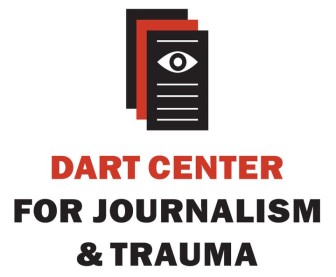 Dart Awards for Excellence in Coverage of Trauma honor the most sensitive, thoughtful, and ethical reporting on survivors of traumatic events. Although not explicitly investigative, winning entries are typically major works of in-depth journalism. Open to newspaper, magazine, online, radio, television, video and multimedia journalism from North America. Deadline typically end of January.
Dart Awards for Excellence in Coverage of Trauma honor the most sensitive, thoughtful, and ethical reporting on survivors of traumatic events. Although not explicitly investigative, winning entries are typically major works of in-depth journalism. Open to newspaper, magazine, online, radio, television, video and multimedia journalism from North America. Deadline typically end of January.
The Michael Elliott Award for Excellence in African Storytelling honors emerging journalists in Africa who strive to strengthen people’s voices and illuminate the transformational change taking place on the continent, and is open to English-speaking journalists working in Africa. Deadline usually in January.
The #AllForJan Award recognizes exceptional and courageous reporting with a great impact on society, and innovative ways of bringing the story to the public. The award was established after the murder of Ján Kuciak, the young Slovak investigative journalist killed in 2018. Open to journalists and newsrooms in Central and Eastern European countries. Deadline usually January.
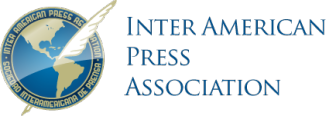 IAPA Excellence in Journalism Awards are given by the InterAmerican Press Association. There are 14 categories, including human rights, environmental, data, and in-depth reporting. Open to newspapers and news agencies in over 33 nations of the Americas and the Caribbean. Deadline usually end of January.
IAPA Excellence in Journalism Awards are given by the InterAmerican Press Association. There are 14 categories, including human rights, environmental, data, and in-depth reporting. Open to newspapers and news agencies in over 33 nations of the Americas and the Caribbean. Deadline usually end of January.
The Gabo Award recognizes and encourages the search for excellence, innovation, rigor and ethical coherence among journalists and media outlets that work in Spanish and Portuguese. The award is organized by the Gabo Foundation, an institution created by the Colombian journalist and Nobel Prize winner in literature Gabriel García Márquez. Deadline usually February.
 Society of Publishers in Asia (SOPA) Awards give tribute to editorial excellence in newspaper, magazines, wire services, and websites across the Asia-Pacific region. Prizes are awarded across 17 categories in English and Chinese, including investigative reporting. Deadline usually February.
Society of Publishers in Asia (SOPA) Awards give tribute to editorial excellence in newspaper, magazines, wire services, and websites across the Asia-Pacific region. Prizes are awarded across 17 categories in English and Chinese, including investigative reporting. Deadline usually February.
Human Rights Press Awards aims to recognize and encourage excellent investigative and original reporting on important issues in the mass media. The goal of the awards is to increase respect for people’s basic rights and to focus attention on threats to those freedoms. Sponsored by the Foreign Correspondents’ Club, Hong Kong, qualifying work may have been published in English or Chinese on a professional media platform by a professional journalist (except student categories), including freelancers. Entries must be reported from the Asia region, including Central Asia but excluding the Middle East, Australia, and New Zealand. Entries must relate to the Universal Declaration of Human Rights and cite the specific article that the work seeks to address. Deadline usually in February.
Evens Journalism Prize, a biennial contest for European journalists, seeks to support and honor journalists who have the potential to both challenge the current media landscape and to enrich its practice, whilst positively contributing to the quality of the public debate. Since 2019, the prize is awarded in three different categories: culture, geopolitics and education. Deadline usually March.
The Ortega y Gasset Journalism Awards, which features a best journalistic story or investigation category, recognizes high-quality, rigorous Spanish-language reporting in printed or digital format. Named after the Spanish philosopher and journalist José Ortega y Gasset, past winners hail from Ecuador, Spain and Nicaragua. Deadline usually March.
The Franco-German Journalism Prize has been awarded every year since 1983 to authors whose outstanding journalistic work contributes to a better understanding of Franco-German and European relations. Submissions are accepted in news, documentary, investigative journalism, and young talent categories, alongside a special jury prize. Deadline usually March.
Maria Moors Cabot Prize, administered by Columbia University’s Graduate School of Journalism, is given to journalists in the Western hemisphere who, through a distinguished body of work, have contributed to Inter-American understanding. Occasionally, the award is given to an organization. Deadline usually in mid-March.
Daphne Caruana Galizia Prize for Journalism rewards outstanding journalism in memory of Maltese journalist Daphne Caruana Galizia. The €20,000 annual prize is awarded at the European Parliament of Strasbourg to journalists or teams of journalists based in the European Union. Deadline usually in July.
Southern Africa Media Award in Social Accountability Reporting, which is sponsored by Highway Africa and the Partnership for Social Accountability (PSA) Alliance, is open to journalists based in Malawi, Tanzania, Mozambique, Zambia or Zimbabwe. Two awards are given, for investigative reporting on HIV and sexual reproductive health and rights (SRHR), and food security and agriculture. Deadline usually in August.
CEI SEEMO Award for Outstanding Merits in Investigative Journalism is organized by the Central European Initiative and the South East Europe Media Organisation to honor journalists who contribute to investigative reporting, despite the difficult conditions under which they operate. Open to Albania, Austria, Belarus, Bosnia and Herzegovina, Bulgaria, Croatia, Czech Republic, Hungary, Italy, Macedonia, Moldova, Montenegro, Poland, Romania, Serbia, Slovakia, Slovenia, and Ukraine. Deadline usually in September.
AIJC African Investigative Journalist of the Year recognizes outstanding examples of investigative reporting from Africa that reveal untold stories, hold the powerful to account, question those in public life and serve the public interest. Deadline usually September.
Norbert Zongo Investigative Journalism Prize is an award of excellence established in memory of the famous journalist and editor of the weekly newspaper The Independent, who was murdered on December 13, 1998 in Burkina Faso. The award aims to promote the practice of investigative journalism and research on political, economic, social, cultural and other relevant topics. Open to professional journalists in Africa regularly employed in the media or collaborating with media in Africa. Deadline usually in September.
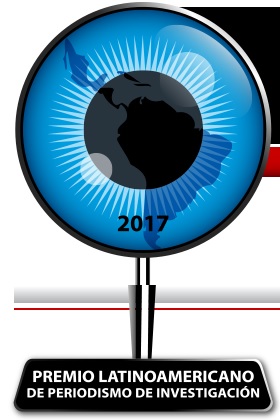 The Latin American Investigative Journalism Awards recognize exceptional investigative work in exposing crime and corruption by journalists in Latin America and the Caribbean. The awards are co-sponsored by the Institute for Press and Society (IPYS) and Transparency International. Deadline usually in late September or October.
The Latin American Investigative Journalism Awards recognize exceptional investigative work in exposing crime and corruption by journalists in Latin America and the Caribbean. The awards are co-sponsored by the Institute for Press and Society (IPYS) and Transparency International. Deadline usually in late September or October.
The Arab Reporters for Investigative Journalism Annual Awards recognize the best journalistic investigations across the Arab region in print, film and cross-border reporting. Submissions must be in Arabic and should cover current affairs in the Arab world. Deadline usually end of September.
The IJ4EU Impact Award gives cash prizes to the best cross-border investigative journalism projects in Europe. Each year, an independent jury will select three collaborative, transnational investigations for three prizes, each worth €5,000. Deadline usually November.
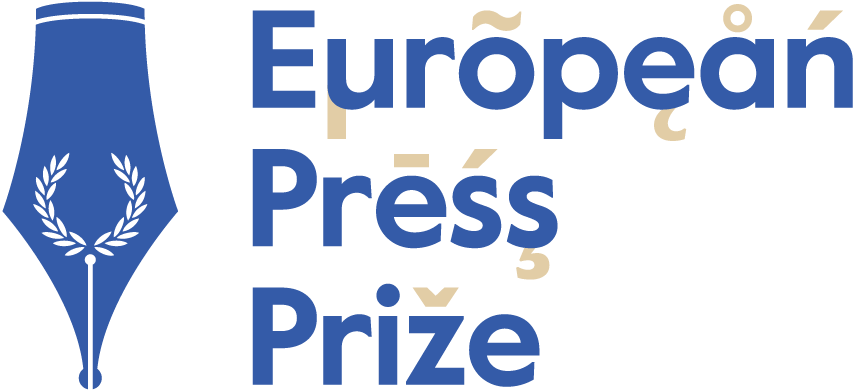 European Press Prize is given annually across four different categories, including investigative journalism, migration journalism, and distinguished reporting. The prize is open to any print or online journalist who is a citizen of a Council of Europe country, with the addition of Belarus and Russia. Deadline usually December.
European Press Prize is given annually across four different categories, including investigative journalism, migration journalism, and distinguished reporting. The prize is open to any print or online journalist who is a citizen of a Council of Europe country, with the addition of Belarus and Russia. Deadline usually December.
SAJA Journalism Awards are given for outstanding original reporting, including investigative reporting. Organized by the South Asian Journalists Association, the awards are open to journalists across all media who report about South Asia or the South Asian diaspora, or to journalists of South Asian origin working in North America. Deadline varies.
World Association of News Publishers organizes a series of regional Middle Eastern, Indian, LATAM, Asian, African, North American, and European Digital Media Awards. These awards recognise publishers who have created groundbreaking digital products that engage readers while growing their online business. Deadlines vary.
National Awards
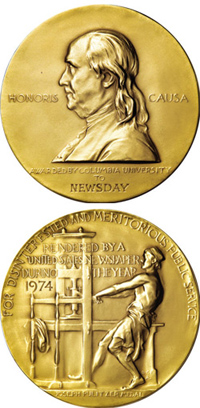 We have not included the many prestigious awards given out at a national level or open only to media based in a single country. These include, for example, the Pulitzers, Selden Ring, Goldsmith, and Overseas Press Club prizes in the United States. For information on national awards, it’s best to check with local journalism associations and other online sources. For the United States, this Wikipedia entry is a good start. For Brazil, this compendium is useful. Good luck!
We have not included the many prestigious awards given out at a national level or open only to media based in a single country. These include, for example, the Pulitzers, Selden Ring, Goldsmith, and Overseas Press Club prizes in the United States. For information on national awards, it’s best to check with local journalism associations and other online sources. For the United States, this Wikipedia entry is a good start. For Brazil, this compendium is useful. Good luck!


